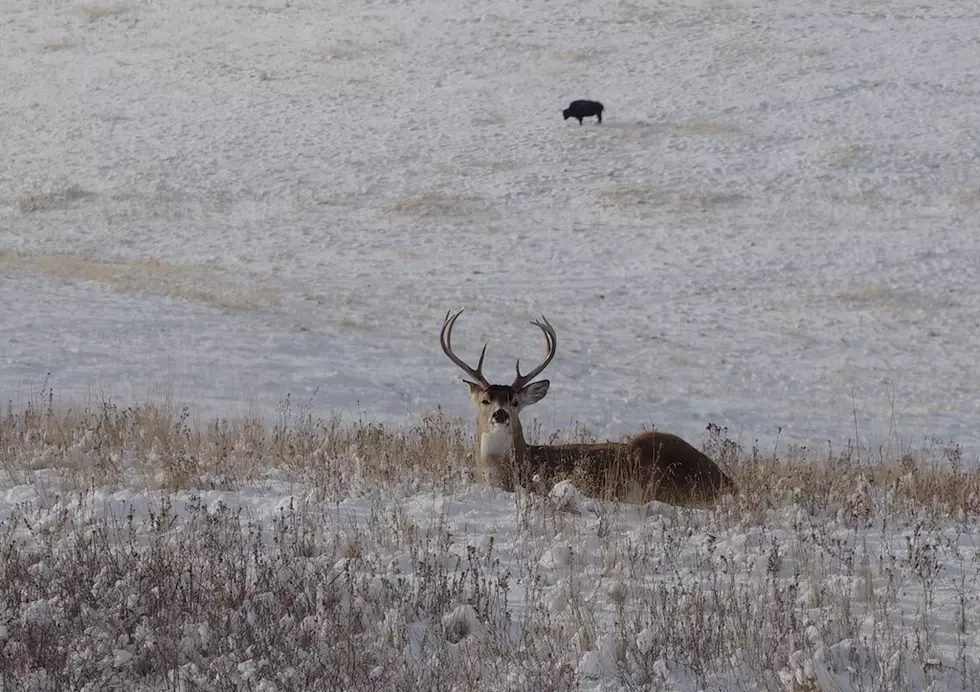
FWP wildlife chief reassigned
On Wednesday, sources inside Montana Fish, Wildlife & Parks revealed that Wildlife Administrator Ken McDonald has been assigned different responsibilities.
McDonald reportedly will now be heading up a “habitat lease program.” Sources were granted anonymity because they could lose their jobs.
On Thursday, FWP spokesman Greg Lemon said McDonald would still fill the wildlife chief position, however “the habitat leasing program is his top priority.”
“At times that might mean he has to pull in other leaders within the wildlife division to help with other administrator-type duties. However, he is still the wildlife division administrator and will be responsible for determining how best to manage the division work and staff,” Lemon said in an email.
McDonald has been the wildlife division chief, or administrator, for at least a dozen years. Many have become familiar with him for his many appearances before Legislative committees, speaking for or against various bills or just providing information on legislation that could affect Montana’s wildlife.
The 2021 Legislature was the first session where Director Hank Worsech prohibited staff from testifying on bills so McDonald was less visible.
However, others know him for the countless meetings related to specific species, such as the Interagency Grizzly Bear Committee or Interagency Bison Management Plan meetings, where he represented FWP.
McDonald’s longevity as bureau chief has many wondering what prompted the sudden reassignment. Often, a reassignment signals the FWP leadership’s displeasure with a particular employee. Since they can’t fire an employee without cause, they put the employee in a lower position.
For example, in 2015, Arnie Dood was removed from his position as the threatened and endangered species coordinator where he’d spent years trying to establish a wild bison herd in Montana. This was before Montana’s tribes started getting their own herds, and bison were still confined to Yellowstone National Park and the National Bison Range.
Dood regularly encountered tough opposition from Montana ranchers fearful of bison transferring brucellosis to their cattle, even though elk are the main disease vectors.
After Dood applied to be the Region 3 supervisor in 2014 but didn’t get the job, FWP leadership demoted him to overseeing brucellosis management in the Paradise Valley. Since he’d already put in 40 years with FWP, Dood resigned instead.
More recently, in December, former Region 2 Wildlife Manager Mike Thompson was suddenly relieved of his duties while in the middle of trying to reorganize deer and elk hunting seasons. With no notice, Worsech gave him a 20-day suspension.
“My suspension cited ‘failure to adequately supervise my direct reports’ and ‘breaches of chain of command.’ I didn’t know we were at war. People who know me would — and have — recognized my misdeeds as being well within the norm of my 41 years of FWP service. I am not hard to correct. A direct conversation would’ve sufficed,” Thompson wrote in a Jan. 12 Missoulian letter.
With that, Thompson also resigned.
FWP is now suffering the loss of many experienced wildlife managers and biologists. Many have resigned or moved on within just the past year, as Worsech has instituted policies and programs that have little to do with science, making it difficult for dedicated biologists to do their jobs.
Now that the wildlife division has only a part-time chief too, some are worried that Worsech may make changes to further diminish the division. Rather than leaving wildlife as its own division, it’s rumored that Worsech is considering moving what remains of the Wildlife Division under the new Parks and Recreation division as part of his reorganization of FWP. He’s already moved fishing access sites and wildlife management areas under Parks and Recreation.
That could have damaging effects to a department that was once a national leader in wildlife management. It could stifle internal efforts to preserve and protect species that aren’t as popular as big game, such as grizzly bears, wolves and bison.
Meanwhile, it isn’t yet clear how a part-time chief can lead a wildlife division that manages the widest range of species in the contiguous 48 states. To FWP biologists, it appears that McDonald is the second employee to lose part of his leadership position. Similarly, former Parks chief Beth Shumate was demoted to assistant administrator when Worsech hired Hope Stockwell from the Montana Legislature to run the Parks and Recreation Division.
The reference to managing a “habitat lease program” means McDonald will be overseeing Worsech’s modified version of the Habitat Montana program. The Habitat Montana program used to get a certain allocation of sportsmen’s dollars – around $2 million a year - to buy conservation easements or fee-title land for wildlife habitat. Certain legislators oppose FWP acquiring more land, so some bills have temporarily limited Habitat Montana to buying only conservation easements.
Now, however, Worsech is creating a new leasing program so Habitat Montana money will be spent on short-term habitat leases, a program that is potentially more expensive and less enduring than conservation easements. But it falls in line with Worsech’s policy of prioritizing landowners over sportsmen.
Contact reporter Laura Lundquist at lundquist@missoulacurrent.com
